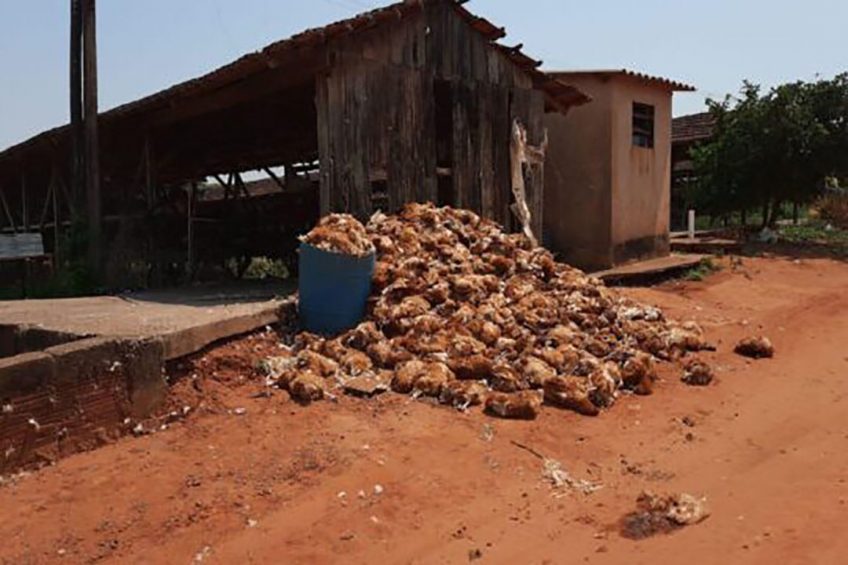Heat wave kills over 1 million layers in Brazil

A historic heat wave with temperatures of above 41ºC has killed up to a million chickens in the city of Bastos, in São Paulo State, about 530 kilometres west from the capital.
According to the Rural Syndicate of Bastos, about 3% of the entire poultry population in the region might be dead.
Even the birds that survived, will produce less and smaller eggs because of the stress caused by the heat.”
On just one farm, approximately 50,000 birds died due to high temperatures of above 40°C over a 5 day period. The “Egg Capital” is the largest egg producing region in Brazil with 34 million birds on numerous farms. According to the State Department of Agriculture and Supply of São Paulo, the ‘city’ produces 33% of the total state production, 438 million dozen last year. Katsuhide Maki, producer and president of the Rural Syndicate of Bastos, said to local newspapers that production is in trouble. “Even the birds that survived, will produce less and smaller eggs because of the stress caused by the heat,” he expects.
 Impact of heat stress: Production vs adaptation
Impact of heat stress: Production vs adaptation
Livestock animals possess several adaptive mechanisms to cope with heat stress challenges. Here, the adaptive abilities of animals to heat stress, which improves their performance in harsh climatic conditions, are examined.
Egg prices climbing
The loss of birds is likely to cut monthly production by 6%, with a direct impact on the egg market. Consumer prices are already significantly higher. The Center for Studies in Applied Economics (Cepea) from the University of São Paulo (USP) have already registered and increase in white egg prices of 6.3% in just few days while brown egg prices jumped up even more with 7.2%.
“We have been monitoring the situation since last week. The trend we see, is less production in the short and medium terms. There are reports of producers who lost up to 20% of their birds,” says Juliana Ferraz, market analyst at Cepea.
![]() Check out the Poultry Health Tool
Check out the Poultry Health Tool
With the latest insights on the 40+ most common poultry diseases.
Unprecedented loss of layers
The Kakimoto farm registered one of Bastos’ most significant losses. Sérgio Kakimoto has 800 thousand birds and calculated 50,000 poultry dead in the 5 days. “In 54 years, we never had a situation like that. We have had heat waves before, but none so strong and for as many days,” he said.













